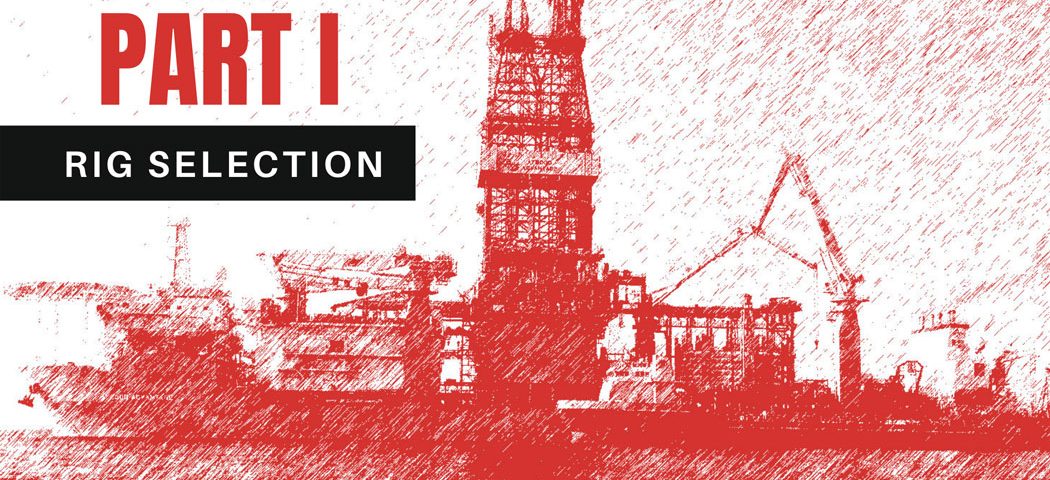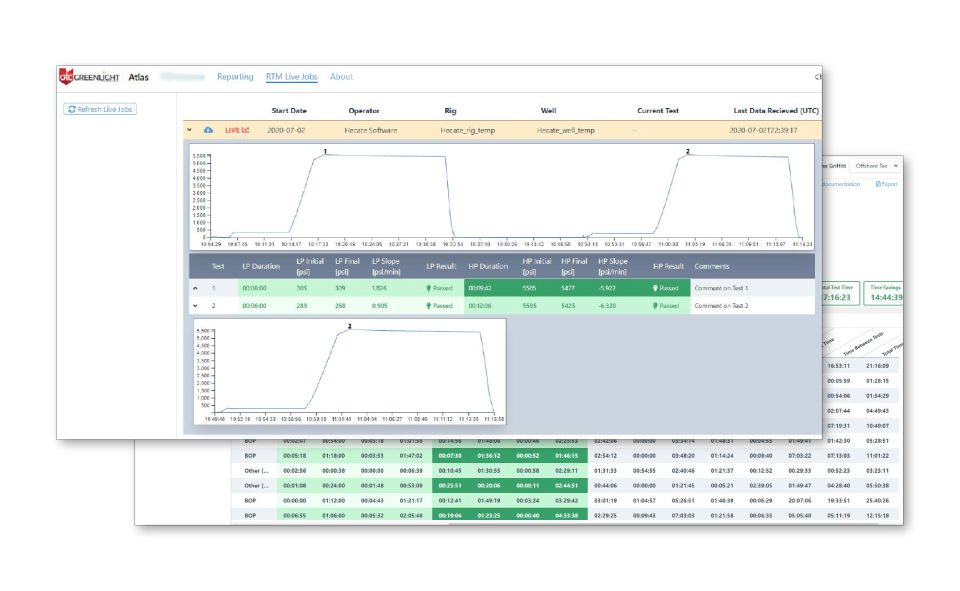- Have any questions?
- +985-727-7400
Rig Selection and Rig Acceptance

Weathering the Storms of 20/21
March 29, 2021
Rig Selection and Rig Acceptance
January 21, 2022
This is part one of a two-part series.
Part One: Rig Selection
By Doug Foster
Drilling rigs are engineered and constructed with defined operational and environmental limits. For mobile offshore rigs, that means they are inspected by and issued certifications of fitness by a certifying authority. The rigs are outfitted by the drilling contractor, sometimes with direct input from an operator, with equipment that is deemed suitable to operate, as required, within these defined limitations. As such, operators can look at a rig marketing portfolio and reasonably determine, assuming that it has been properly maintained, if the rig is capable of performing their work.
Helping Clients Avoid Costly Surprises
With our review of regulatory/maritime documentation, we help to make sure that our clients are not surprised by any upcoming regulatory inspections, or currently imposed operational restrictions, which might impede their planned program. Our review of maintenance records, with a strong focus on deferred or unperformed items, helps us highlight areas of concern that may lead to operational interruptions and cost time and money, or more importantly, have an impact on safety of the rig and its personnel. Our review of past downtime, with specific focus on corrective actions applied, helps identify whether costly failures are properly addressed to prevent the likelihood of them happening again.
Remote Evaluations
At OTC, we absolutely prefer to personally visit the rig when performing an evaluation. However, we make every effort not to overburden the operation when assembling this information. In reality, a significant amount of work can be performed without visiting the rig, if the drilling contractor can provide us with sufficient documents to review. This would ideally be coupled with a one or two day rig visit, which is much too short for a detailed acceptance inspection but allows us to look at the established culture and build a small photo essay that may highlight potential flaws and areas of deeper concern, as well as identification of good practices. It also allows us to review any master action plans and work list projects that the crews are involved in and which might interfere with our client’s planned program.
Safety of Operations
The safety aspect of the audit considers the risk of dropped objects, rigging and lifting practices, and corroded equipment etc. on the rigs. Most rigs nowadays are held to a self-developed standard of safe operating procedures. At OTC, we focus on determining if they live up to their own standards, rather than inventing new standards for them to adhere to. Once we identify any potential safety concerns on the rig, we ask the client’s permission to interact transparently with the drilling contractor in constructively discussing the problems and issues. As well as reporting our findings to the client to support the rig selection effort, we immediately advise the drilling contractor/rig personnel of our findings and qualify our concerns giving them an opportunity address our findings. Our goal is to gather information towards supporting the client to optimize their rig selection and utilization. In achieving that goal, we focus on averting or resolving potentially hazardous scenarios together. Due to the high level of mutual respect built up in the process, it is not uncommon for drilling contractors to subsequently hire us directly to perform rig inspections on their behalf.
OTC’s Unique Offering: A Collaborative, Positive Approach
OTC is not a team of document writers. Our approach to our work is to get out, identify the concerns and potential issues and successes, and work with the drilling contractor, examining their processes and procedures to share thoughts on ways to improve the drilling contractor’s operation even further. Underpinning these efforts are a mix of staff that combine enthusiastic youth, with both fresh perspective and formal education with field personnel with many years of experience under their belts. The team’s positive attitudes and dedication to work is clear for everyone to see. In our experience, by developing a mutually respectful, supportive relationship, everyone works in an improved atmosphere of sharing, learning, understanding and co-operation.
Keep an eye out for Part Two of our Rig Selection and Rig Acceptance Compliance Corners, which will take a closer look at issues surrounding Rig Acceptance, and the work that OTC performs to best serve our clients in this important area.

